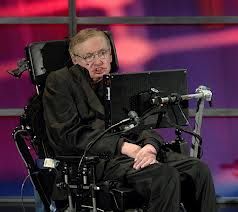Stephen Hawking Supports Right To Assisted Suicide: 'We Don't Let Animals Suffer, So Why Humans?'

Professor Stephen Hawking, considered one of the most famous scientists in the world, has revealed that he is in favor of legalizing assisted suicide for those who are terminally ill as long as certain safeguards are established to ensure it is their ultimate decision.
Confined to a wheel chair, Hawking uses muscles in his cheeks to communicate through a voice synthesizing program on his computer. He still conducts classes at Cambridge University.
According to the National Health Services, assisted suicide became illegal under the Suicide Act in 1961 and can result in up to 14 years in prison. Assisted suicide is the act of deliberately assisting or encouraging someone to commit or attempt suicide. Assisted suicide is legal in Switzerland, Germany, Mexico, and the U.S. state Oregon.
Hawking knows all too much about assisted suicide after his family’s decision to continue his recovery on life support to help keep him alive. Back when he was 21, the cosmologist was diagnosed with motor neuron disease and was given two to three years to live.
Only five percent of people who develop motor neuron disease, also known as amyotrophic lateral sclerosis (ALS) or Lou Gehrig’s disease, live past the first decade. In 1985, Hawking was placed on life support due to complications from pneumonia. Jane Hawking, Stephen’s wife at the time, decided to keep her husband alive. Today, he is 71.
"I think those who have a terminal illness and are in great pain should have the right to choose to end their lives, and those who help them should be free from prosecution," Hawking explained to BBC. "There must be safeguards that the person concerned genuinely wants to end their life and are not being pressurised into it or have it done without their knowledge and consent as would have been the case with me."
A Brief History of Time, Hawking’s popular science novel, sold over 10 million copies worldwide. The author is preparing for the release of his self-titled documentary Hawking in the UK on Sept. 20.



























